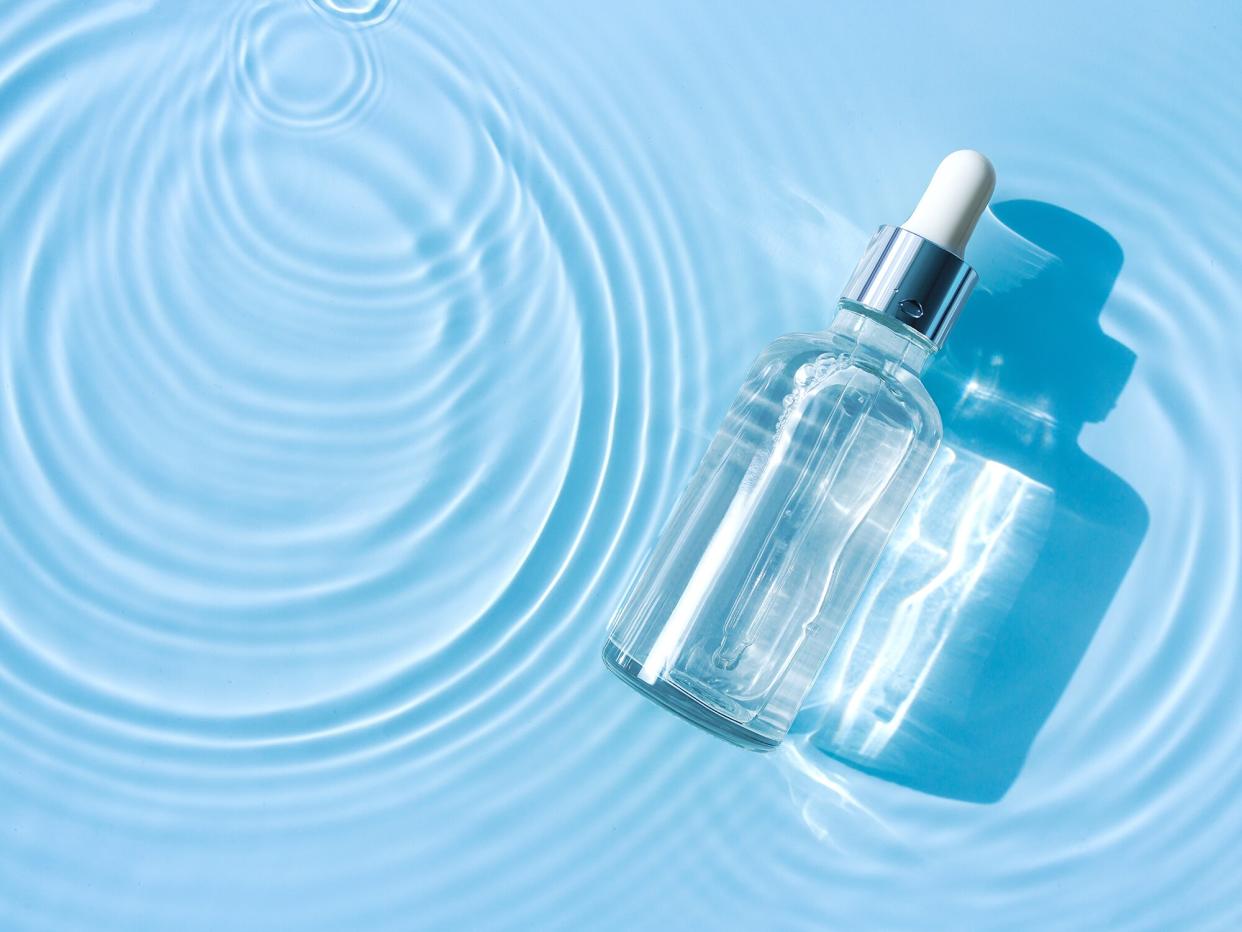Hyaluronic Acid is the Anti-Aging Ingredient You Need for Glowing Skin

TABLE OF CONTENTS
On This Page
What is hyaluronic acid?
How does hyaluronic acid work exactly?
Does hyaluronic acid work on all skin types?
What products can I find hyaluronic acid in?
How often should hyaluronic acid be used to see its effects?
It's nearly impossible to scroll through Instagram or browse the ever-crowded Sephora aisles without reading about hyaluronic acid. The skin-boosting beauty staple has attracted more and more fans in recent years, and it's now a highly sought after anti-aging ingredient found in everything from serums to moisturizers. But what exactly makes this popular anti-ager better than the rest? We asked dermatologists to weigh in on the benefits of hyaluronic acid, and how it works to better even the most sensitive of complexions.
What is hyaluronic acid?
Sodium hyaluronate, or hyaluronic acid, naturally occurs in our bodies, and it works to both attract and seal water into the skin. "The greatest amounts of hyaluronic acid are found in skin soft tissue and the eyes," says Dr. Payman Danielpour of Beverly Hills Plastic Surgery Group. "Our bodies naturally produce the substance to draw in and retain water to keep the body well lubricated and moist." Used topically and as an injectable, hyaluronic acid is commonly used as a filler in cosmetic surgery to plump lips, cheeks, and fine lines.
RELATED: Everything You Need to Know About Tretinoin—The Anti-Aging Ingredient Derms Swear By
How does hyaluronic acid work exactly?
Hyaluronic acid works by drawing in moisture to give your skin a smooth, and almost plumped out appearance, making fine lines and wrinkles less prominent. "When you hydrate the skin from outside, you make fine lines less noticeable," says Susan Weinkle, an assistant clinical professor of dermatology at the University of South Florida, in Tampa.
Just a single gram of hyaluronic acid can hold up to six liters of water. "Currently, there is a substantial amount of research being done on the use of hyaluronic acid to combat and prevent the effects of aging," notes Dr. Danielpour. For example, one study showed that as a result of aging over time, there is a progressive reduction of the size of the hyaluronic acid polymers in the skin. This explains why skin loses moisture and feels physically dryer as we age.
However, aging isn't the only reason for the body's reduction in hyaluronic acid. Exposure to ultraviolet radiation from the sun, pollution, and tobacco smoke are key factors in hyaluronic acid depletion.
RELATED: These Are the Best Anti-Aging Products, According to Thousands of Reviews
Does hyaluronic acid work on all skin types?
Although hyaluronic acid is beneficial for all skin types, the miracle, moisture-boosting ingredient is especially helpful for those with sensitive or dry skin, since the acid boasts skin smoothing and hydrating properties.
What products can I find hyaluronic acid in?
You can find hyaluronic acid in a variety of skincare products, including moisturizers and serums. Expert esthetician Shani Darden, who counts A-list celebs like Jessica Alba as clients, likes applying a hyaluronic serum before an everyday moisturizer. "I love to pair a deeply hydrating hyaluronic acid serum that plumps the skin, like Dr. Nigma's Serum No 1, with my Daily Oil-Free Moisturizer for deeply hydrated, plump skin," Darden says.
Hyaluronic acid-infused moisturizers also exist, including Neutrogena Hydro Boost Hyaluronic Acid Hydrating Water Face Gel Moisturizer and the top-rated PCA Skin Hyaluronic Acid Boosting Serum.
How often should hyaluronic acid be used to see its effects?
Hyaluronic acid is safe to use every day, and works best when applied to wet skin after cleansing.

